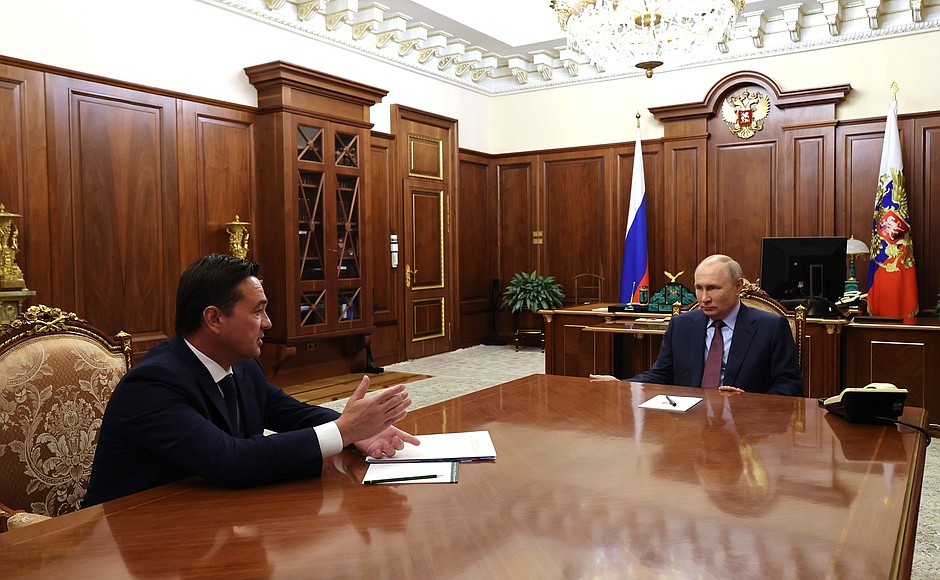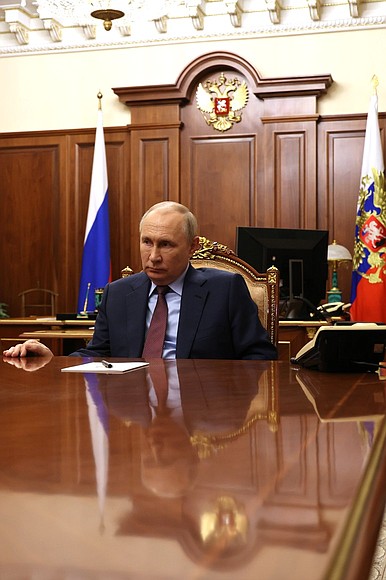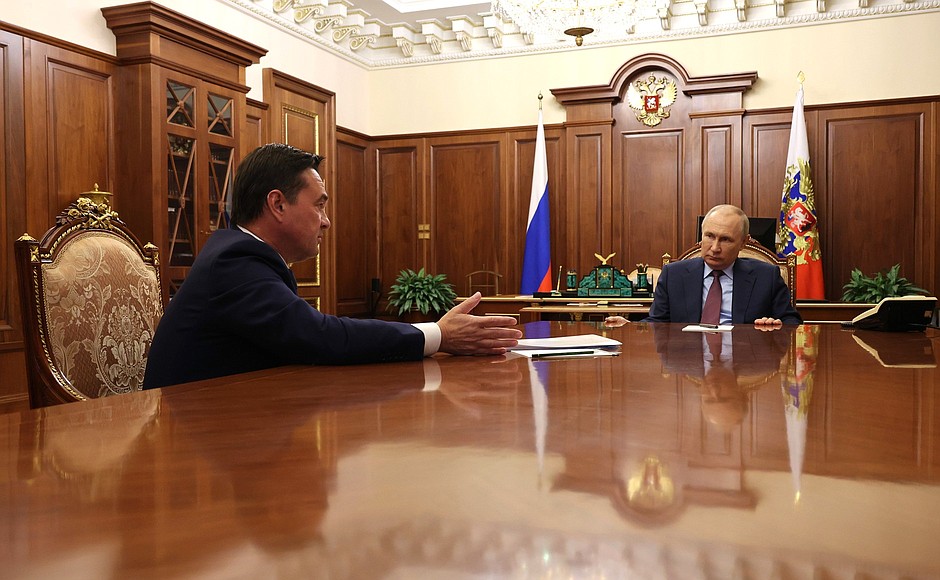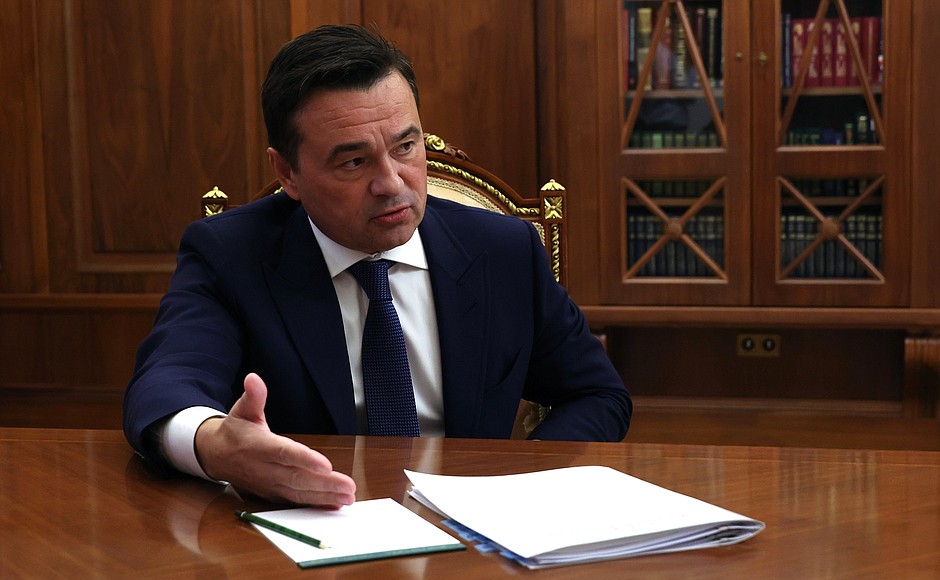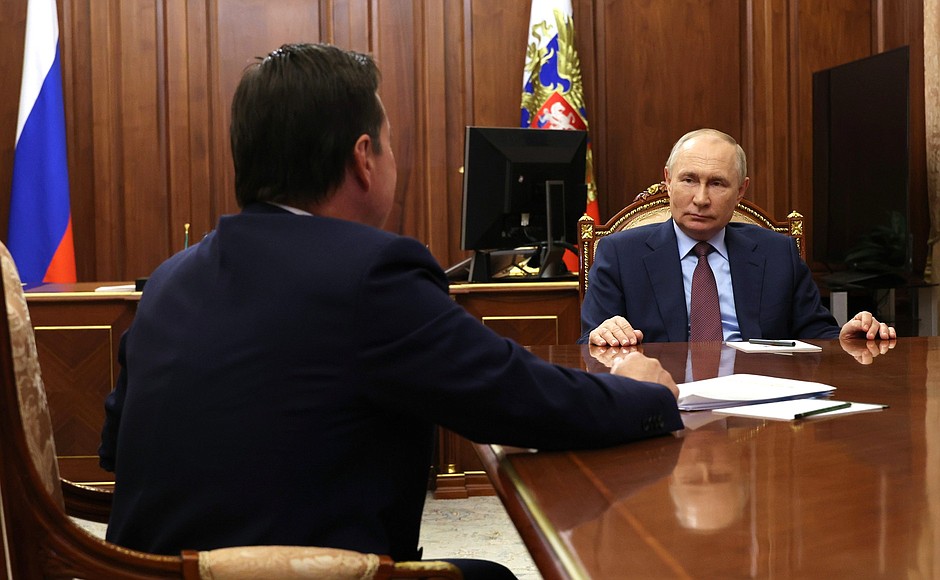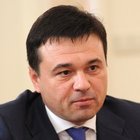During the working meeting, Moscow Region Governor Andrei Vorobyov reported to Vladimir Putin about two drones that were shot down by the air defence forces. They also discussed issues related to the preparations for September 1, the development of the Moscow transport hub and the emergency housing situation in the region.
Speaking about the Moscow Region’s readiness for the start of the new academic year, Mr Vorobyov revealed that 30 schools and 25 kindergartens were due to open this year. He said the population of the Moscow Region was growing and this year an additional 38,000 children would go to school. Mr Vorobyov also noted the success of the students from the Phystech Lyceum, who won physics, biology and astronomy awards in international academic competitions. The Governor emphasised that primary attention was paid to everything related to lessons in history and the exact sciences.
Mr Vorobyov also thanked the President for his decision on the development of the Moscow transport hub, stressing that transport is a key issue in the Moscow Region. He said a new route – the [third] Moscow Central Diameter – was opened the other day and the construction of overpasses began. The Governor also emphasised the importance of the President’s support for concession roads – these are roads that are linked with Moscow and its expressways, reducing congestion on the road network, and allowing the economy to develop.
Mr Vorobyov briefly reported to the President on assistance for the families of the participants in the special military operation and children living in the Donetsk People’s Republic. Recreation was organised for them – 1,600 children spent their vacation at the seaside, and 900 went to the Litvinovo children’s centre in the Moscow Region. The Defenders of the Fatherland Foundation is operating in the region.
Vladimir Putin noted that he was aware of how this work was being organised in the Moscow Region and he expressed the hope that the Governor would continue to give this matter his personal attention, setting a good example to other regions.
The President also recalled one of the region’s main headaches – landfills, including former landfills. According to Mr Vorobyov, landfills were not only closed but also underwent reclamation under a federal programme and now it was a completely new reality. He thanked all government structures that had supported these costly undertakings.
The Governor also expressed gratitude for the laws passed by the Federal Assembly in spring – on gas security, parks in forests and the right of the public to choose a managing company. He emphasised that these laws were important for all regions, not only the Moscow Region.
Replying to the President’s question about emergency housing, the Governor said the previous programme had been completed and a new stage launched. Importantly, the law on developing a territory – or renovation as it is often called – makes it possible to resettle people at a quite different pace. He emphasised that projects on railway connections and modern roads, which allow people to travel comfortably around Moscow and the Moscow Region, are lending significance to renovation projects in remote territories, the so-called second belt, which has a complicated economic model.
